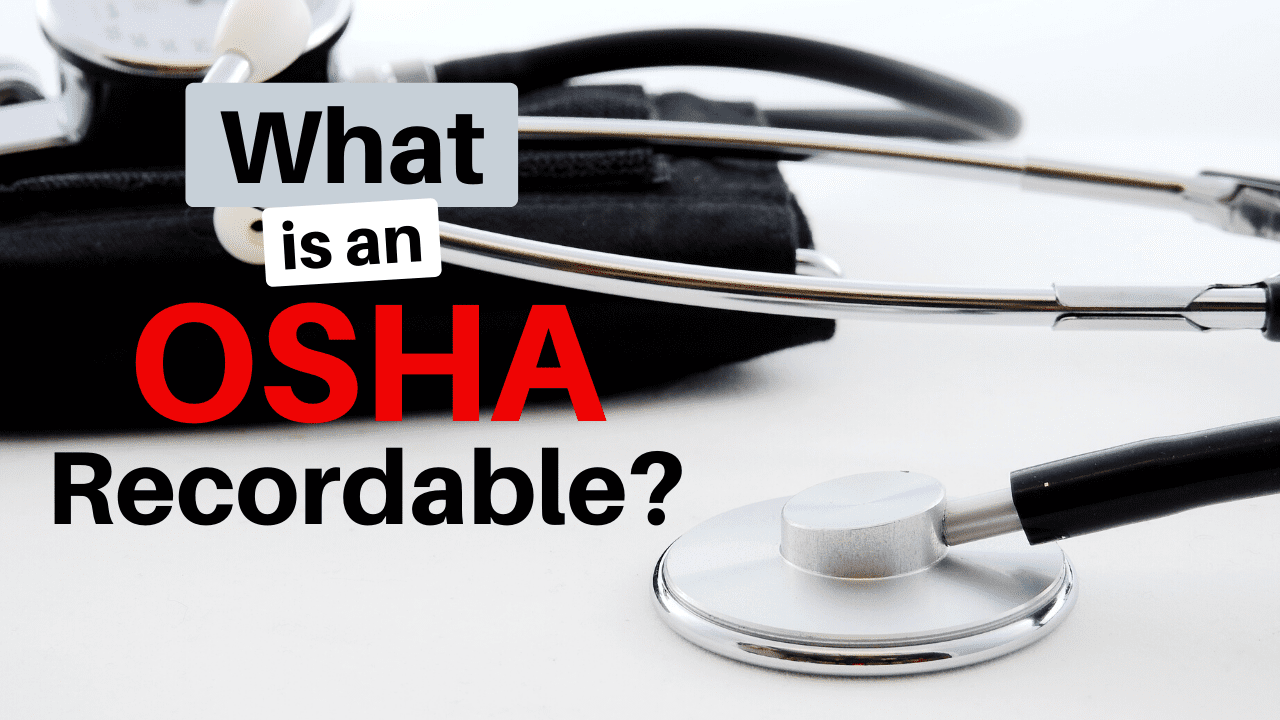COVID-19 & OSHA Recordkeeping: Top FAQ’s
On Tuesday, March 10, 2020, OSHA provided guidance about the recording and reporting of workplace exposures to COVID-19. To provide clarity, here are answers to the most frequently asked questions we’ve received about COVID-19 and OSHA recordkeeping.
If an employee contracts COVID-19, is it recordable on the OSHA 300 log?
According to OSHA, if an employee has a confirmed COVID-19 case, it would be recordable. However, the workplace must be the likely cause or a contributing factor and must meet one of the following criteria:
1. Medical treatment (beyond first aid) is provided, such as prescription medication
2. Restricted duty is imposed by the treating physician or the employer
3. Days away from work (lost time) is imposed by the treating physician (where the employee is kept from work and cannot work at home due to the virus)
Based on the characteristics of the virus, it’s virtually certain that one of these 3 criteria would be met. For a complete breakdown on what is considered an OSHA recordable, click here.
Do I have to record a case if the employee believes COVID-19 was contracted in the workplace?
Maybe. It depends on the circumstances. You must determine, on a case-by-case basis, whether an event or exposure in the work environment caused or contributed to the illness; Was the employee in close contact with someone who has the illness? Did they work in an area with other employees who may have also contracted the virus? If it is more likely than not to be work-related, you must record.
Keep in mind, an employee reporting an illness to an employer or asserting they contracted the illness in the work environment does not make the case recordable; it is the employer’s responsibility to determine work-relatedness based on available info.
Do I have to record a COVID-19 case if my employee knows he contracted the virus outside the work environment?
No. If exposure occurred outside the workplace, it is not considered work-related. Therefore, it is not recordable. Keep in mind, if employee diagnosed with COVID-19 was in the workplace after exposure, future cases of employees with COVID-19 may be work-related. In other words, if an exposure in the work environment caused or contributed to the illness, there is a presumption the illness is work-related.
Must employers notify OSHA directly of COVID-19 cases?
It depends. A case is only reportable to OSHA if the employee dies or is hospitalized from contracting COVID-19 at work. Outpatient hospitalizations are not reportable. This follows OSHA’s normal reporting criteria for fatalities and other severe injuries. Business owners must report any worker fatality within 8 hours and any amputation, loss of an eye, or hospitalization of a worker within 24 hours.
If an employee contracts COVID-19 on a business trip while outside the United States, is it a recordable case?
No. Since the exposure occurred outside the jurisdictional boundaries of the United States, this is not a recordable illness. However, if the employee returns to the workplace in the U.S. and works closely with a co-worker who then contracts COVID-19, the 2nd case may be recordable. However, it must meet all the criteria addressed in question #1 from above.

Does workers’ compensation related to COVID-19 have any impact on recording a case?
Absolutely not. Whether a workers’ compensation claim is filed or not and whether the claim is paid or denied has no bearing on whether a COVID-19 case is recordable.
Are recordable COVID-19 cases considered a privacy case and therefore must be kept on a separate log?
No. A privacy case is defined very specifically in the regulations and a COVID-19 case does not meet that definition. For more information OSHA’s “privacy concern cases” click here.
Are other infectious diseases such as the common cold or flu recordable cases?
You are not required to record injuries and illnesses if the illness is the common cold or flu. They are specifically excluded per OSHA regulations. Other contagious diseases, such as tuberculosis, hepatitis A, or plague are considered work-related if the employee is infected at work.







